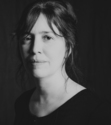I was asked by the prolific author Heather Fowler to participate in a blog relay Q&A about the writing process. See Heather’s blog for her answers to the same questions. Question 1. What are you working on?I’m in the midst of a very rough first draft of my next novel,
One Good Thing. The novel starts out in prerevolutionary Russia and tells the story of five friends, who are teenagers when the Bolshevik Revolution breaks out. The novel follows the various paths their lives take. Two go into exile in France after their father, a high-ranking tsarist official, is assassinated. One joins the White army and then goes into exile in England. Two stay in Russia; one of those becomes a Russian Orthodox priest; the other works for the NKVD/KGB until he ends up in the gulag just as World War II breaks out.
Question 2. How does your work differ from others of its genre?My work has a tendency toward magic realism (or surrealism, or absurdism). Of course other people write in this mode too, but it's not the norm for literary fiction.
I don't shy away from emotions, even at the risk of being called sentimental. My characters experience deep joy sometimes, and profound connections with each other. Having said that, I also tend to kill off my characters more than other authors do.
My work is very political, dealing with lives impacted by patriarchy and misogyny, racism, colonialism, and characters who question the status quo, try to struggle against all those "isms."
My short stories and the novel I've just finished often feature people of color, and they're not portrayed in the stereotypical manner that is seen too often in fiction, where Latinos and African Americans, when they're present at all, are portrayed as oversexed, criminal, or drug-addicted. on the other hand, my novel-in-progress centers on five affluent Russians, but the question of unearned privilege is
the ethical issue pervading the whole work.
Despite all that--the deaths, the politics--my work is also funny. At least it makes
me laugh. But then again, I'm kind of morbid.
Question 3. Why do you write what you do?Things just float up in my imagination--a character, some fragments of a scene--and then I flesh out the story by daydreaming about it, letting it unspool itself in my imagination so I can find out who the character is and why she's doing what she does.
Question 4. How does your writing process work?I often do my first drafts by hand. Something about the messiness, the arrows and circles I draw, helps new details and ideas to pop out of nowhere. I love to do clustering or mind-map type exercises, which are basically word association, but on paper. If I'm blocked I'll do a freewrite or sprint--writing quickly without stopping for a set amount of time, 10 or 20 minutes. There are online applications that allow you to do that too, like "Write or Die" or "Written? Kitten!"
I know from teaching creative writing, where we often did writing exercises together in class, that writing in a group is a weirdly productive experience. Even having a virtual community, under the right circumstances, can really help. I decided to try National Novel Writing Month last November, and I could keep up with fellow writers from the Albany area on the NaNoWriMo website and on Facebook. We shared our suffering.
Speaking of political writers--next week Lynn Kanter will answer these same questions on her blog, Start with a Story. I'm honored that Shade Mountain Press will be publishing Lynn's third novel, Her Own Vietnam, this fall.
 newest »
newest »
 newest »
newest »
 "Things floating up" does tell the story! See today's NYT Science Section on how walking even if on a treadmill in non-stimulating circumstances helps this!
"Things floating up" does tell the story! See today's NYT Science Section on how walking even if on a treadmill in non-stimulating circumstances helps this!
 Russell wrote: ""Things floating up" does tell the story! See today's NYT Science Section on how walking even if on a treadmill in non-stimulating circumstances helps this!"
Russell wrote: ""Things floating up" does tell the story! See today's NYT Science Section on how walking even if on a treadmill in non-stimulating circumstances helps this!"




